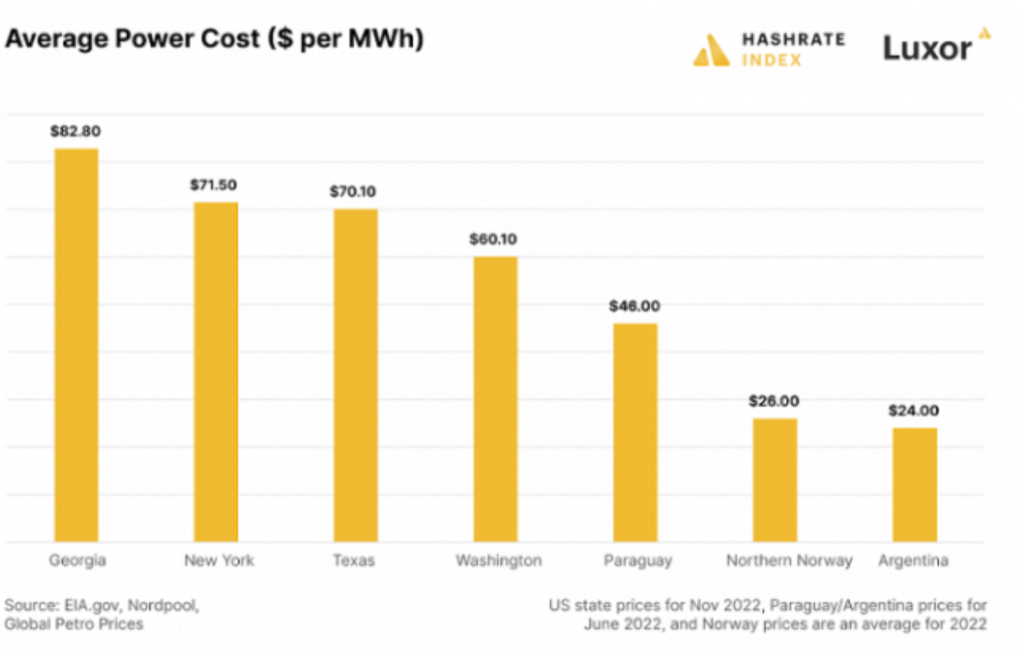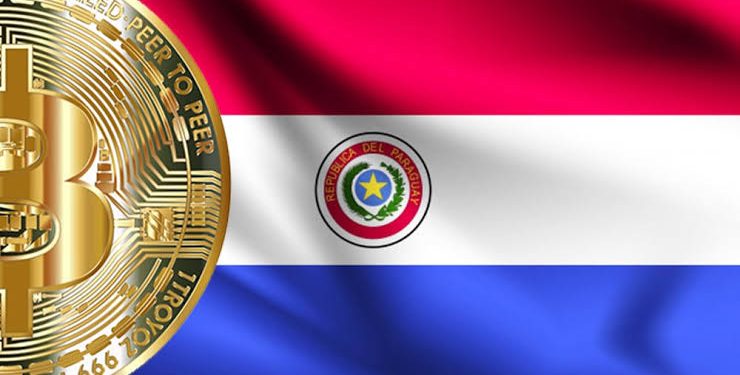Hashrate Index, a mining insight group, has identified Paraguay as a prospective destination to establish the next Bitcoin mining hub in Latin America. Despite being one of the smallest countries in the region, Paraguay possesses favorable conditions to support this emerging industry. Among the key advantages are the abundance of clean hydroelectric power sources, which provide a sustainable and cost-efficient source of energy.
Nonetheless, the growth potential of Paraguay’s cryptocurrency mining industry may be hindered by the government’s current stance towards this type of activity. While elements are working in favor of Paraguay’s Bitcoin mining industry, the government’s position on the matter could impede the country’s progress in this area
Will Paraguay emerge as a significant Bitcoin mining hub?
Although not widely recognized for its cryptocurrency connections, Paraguay has now emerged as one of the most appealing destinations for Bitcoin miners in Latin America, as per mining insight firm Hashrate Index. The country offers several benefits that could potentially establish it as a significant hub for cryptocurrencies in the region.
The primary advantage that sets Paraguay apart from other countries in the area and has attracted miners following the Chinese miner exodus, is its plentiful supply of clean, inexpensive hydroelectric power. This power can be utilized to construct large-scale Bitcoin mining operations, with most of it originating from the Itaipu Dam, where Paraguayans reportedly use only around 10% of the total energy generated.
While much of this energy is exported to nearby countries, the group suggests that it can be harnessed to power massive mining operations in the future.
Certain Drawbacks
Paraguay may not be an ideal location for establishing a bitcoin mining operation due to two reasons. Firstly, the hot and humid climate in the summer may reduce the lifespan of air-cooled mining rigs.
Secondly, the government has an unfavorable view of bitcoin mining, which has led to a power fee hike of over 50% in January, reducing the earning margins of established miners and making it difficult for them to offer hosting services for third parties.
Paraguay is rapidly emerging as a major hub for cryptocurrency mining
ANDE, the national electricity provider, offers miners competitive rates of around $26 per MWh through their venture. Despite this advantage, Paraguay’s climate is a hindrance to cryptocurrency mining.
During the summer months from November to March, temperatures can rise to 40 degrees Celsius, and the average annual humidity is around 70%. These environmental conditions create challenges for air-cooled bitcoin mining rigs, as they require special attention to cooling in hot environments and are susceptible to corrosion from humidity, which can shorten the life of critical components.
Although the price of electricity in Paraguay is lower than in popular US states for mining, it is still inferior to neighboring Argentina. Additionally, Brazil and Argentina have customs duties that can reach up to 80% of the equipment cost when importing

Although Paraguay’s national grid operator, Administración Nacional de Electricidad (ANDE), completely controls the market and dictates terms to counterparties, there is another nuance to consider. The company also demands a percentage of the miner’s income as payment for electricity, typically ranging from 15% to 20%.
Final Thoughts
The country is facing obstacles with its distribution equipment, which is still linked to ANDE structures, and regulatory barriers. However, if the authorities change their approach, Paraguay has the potential to emerge as the new hub for bitcoin mining.










